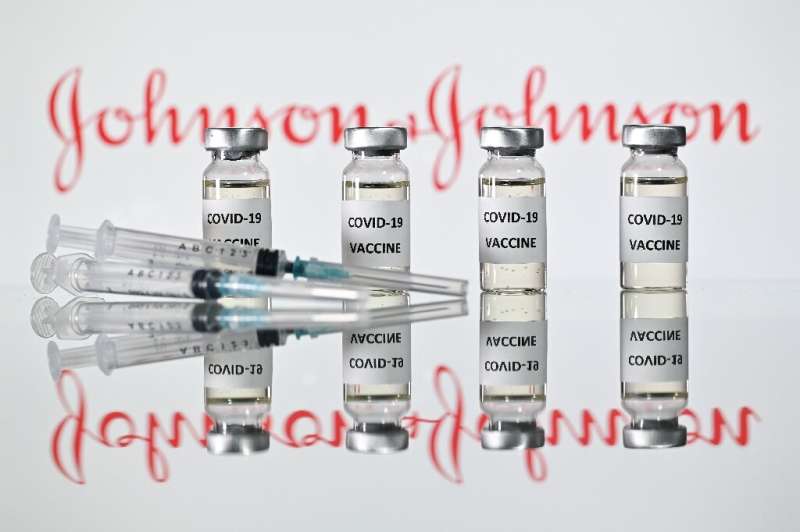
Pharmaceutical companies making COVID vaccines are largely protected legally in the event of harmful side effects, like blood clots that have been linked to jabs from AstraZeneca and Johnson & Johnson.
However while some governments will pay compensation due to sufferers, others assume it is the responsibility of the companies even after drugs agencies back the vaccines.
Europe’s drug regulator was set Tuesday to rule on the safety of the J&J single-shot vaccine after fears it could cause extremely rare clots, while the US will likely announce its verdict on the jab by Friday.
The European Medicines Agency has reviewed four cases—one fatal—of rare blood clots reported among people who got the shot.
The J&J vaccine concerns follow similar reports of blood clots in a very small number of people who received the AstraZeneca jab.
Outlined below are some of the geographical similarities and differences regarding potential legal fallout:
North America and the UK
The United States and the UK have limited the legal responsibility of pharma groups, in a move seen as helping to speed up production of vaccines.
In the US, the Public Readiness and Emergency Preparedness Act authorises the health secretary “to limit legal liability for losses relating to the administration of medical countermeasures such as diagnostics, treatments, and vaccines”.
This is “to encourage the expeditious development and deployment of medical countermeasures during a public health emergency”, the PREP Act adds.
The act also limits the individual liability of pharmaceutical executives, except “for death or serious physical injury caused by ‘willful misconduct'”—which can be difficult to prove according to lawyers.
In Canada, the government is creating a national compensation scheme for any medical fallout from COVID-19 vaccines.
Britain’s government has removed a potentially heavy financial burden for drugs companies by applying its existing compensation programme for illnesses such as tuberculosis and measles also to the coronavirus.
Under the British scheme, a Vaccine Damage Payment in the event of severe disability rise to £120,000 ($165,000, 139,000 euros).
European Union
In the European Union, the situation differs in that legal responsibility lies with the companies.
“However, in certain, very specific circumstances, the companies may ask the member states to indemnify,” according to Stefan de Keersmaeker, a spokesman for the European Commission.
Any disagreement is resolved in court, he added.
According to Antonio Andrade, a lawyer for Portuguese firm Abreu, a vaccine-maker cannot be held responsible for any possible “side effects” flagged up, for example in a leaflet.
Source: Read Full Article



